第47章 THE SECOND ENNEAD(19)
Matter, then, must be described as Indefinite of itself, by its natural opposition to Reason-Principle.Reason is Reason and nothing else; just so Matter, opposed by its indeterminateness to Reason, is Indeterminateness and nothing else.
16.Then Matter is simply Alienism [the Principle of Difference]?
No: it is merely that part of Alienism which stands in contradiction with the Authentic Existents which are Reason-Principles.So understood, this non-existent has a certain measure of existence; for it is identical with Privation, which also is a thing standing in opposition to the things that exist in Reason.
But must not Privation cease to have existence, when what has been lacking is present at last?
By no means: the recipient of a state or character is not a state but the Privation of the state; and that into which determination enters is neither a determined object nor determination itself, but simply the wholly or partly undetermined.
Still, must not the nature of this Undetermined be annulled by the entry of Determination, especially where this is no mere attribute?
No doubt to introduce quantitative determination into an undetermined object would annul the original state; but in the particular case, the introduction of determination only confirms the original state, bringing it into actuality, into full effect, as sowing brings out the natural quality of land or as a female organism impregnated by the male is not defeminized but becomes more decidedly of its sex; the thing becomes more emphatically itself.
But on this reasoning must not Matter owe its evil to having in some degree participated in good?
No: its evil is in its first lack: it was not a possessor (of some specific character).
To lack one thing and to possess another, in something like equal proportions, is to hold a middle state of good and evil: but whatsoever possesses nothing and so is in destitution- and especially what is essentially destitution- must be evil in its own Kind.
For in Matter we have no mere absence of means or of strength;it is utter destitution- of sense, of virtue, of beauty, of pattern, of Ideal principle, of quality.This is surely ugliness, utter disgracefulness, unredeemed evil.
The Matter in the Intellectual Realm is an Existent, for there is nothing previous to it except the Beyond-Existence; but what precedes the Matter of this sphere is Existence; by its alienism in regard to the beauty and good of Existence, Matter is therefore a non-existent.
FIFTH TRACTATE.
ON POTENTIALITY AND ACTUALITY.
1.A distinction is made between things existing actually and things existing potentially; a certain Actuality, also, is spoken of as a really existent entity.We must consider what content there is in these terms.
Can we distinguish between Actuality [an absolute, abstract Principle] and the state of being-in-act? And if there is such an Actuality, is this itself in Act, or are the two quite distinct so that this actually existent thing need not be, itself, an Act?
It is indubitable that Potentiality exists in the Realm of Sense: but does the Intellectual Realm similarly include the potential or only the actual? and if the potential exists there, does it remain merely potential for ever? And, if so, is this resistance to actualization due to its being precluded [as a member of the Divine or Intellectual world] from time-processes?
First we must make clear what potentiality is.
We cannot think of potentiality as standing by itself; there can be no potentiality apart from something which a given thing may be or become.Thus bronze is the potentiality of a statue: but if nothing could be made out of the bronze, nothing wrought upon it, if it could never be anything as a future to what it has been, if it rejected all change, it would be bronze and nothing else: its own character it holds already as a present thing, and that would be the full of its capacity: it would be destitute of potentiality.
Whatsoever has a potentiality must first have a character of its own; and its potentiality will consist in its having a reach beyond that character to some other.
Sometimes after it has turned its potentiality into actuality it will remain what it was; sometimes it will sink itself to the fullest extent in the new form and itself disappear: these two different modes are exemplified in (1) bronze as potentially a statue and (2) water [= primal-liquid] as potentially bronze or, again, air as potentially fire.
But if this be the significance of potentiality, may we describe it as a Power towards the thing that is to be? Is the Bronze a power towards a statue?
Not in the sense of an effectively productive force: such a power could not be called a potentiality.Of course Potentiality may be a power, as, for instance, when we are referring not merely to a thing which may be brought into actualization but to Actuality itself [the Principle or Abstract in which potentiality and the power of realizing potentiality may be thought of as identical]: but it is better, as more conducive to clarity, to use "Potentiality" in regard to the process of Actualization and "Power" in regard to the Principle, Actuality.
Potentiality may be thought of as a Substratum to states and shapes- and forms which are to be received, which it welcomes by its nature and even strives for- sometimes in gain but sometimes, also, to loss, to the annulling of some distinctive manner of Being already actually achieved.